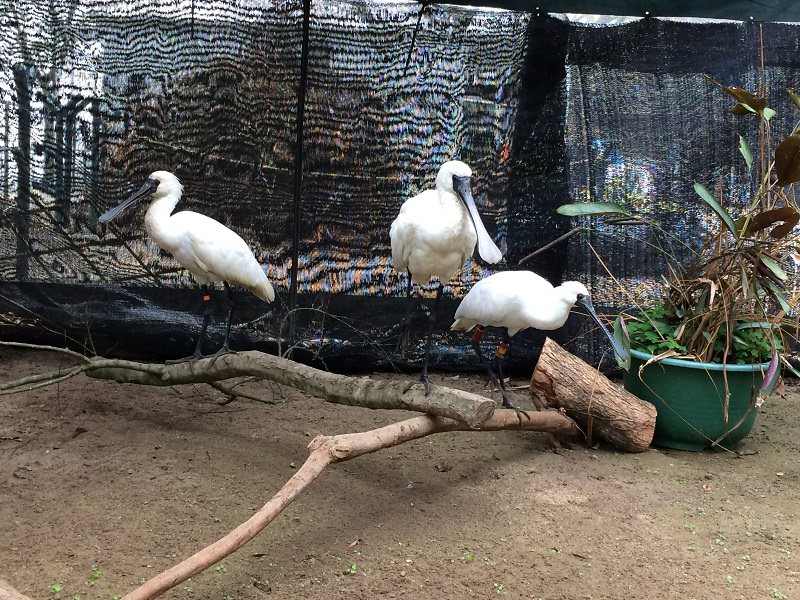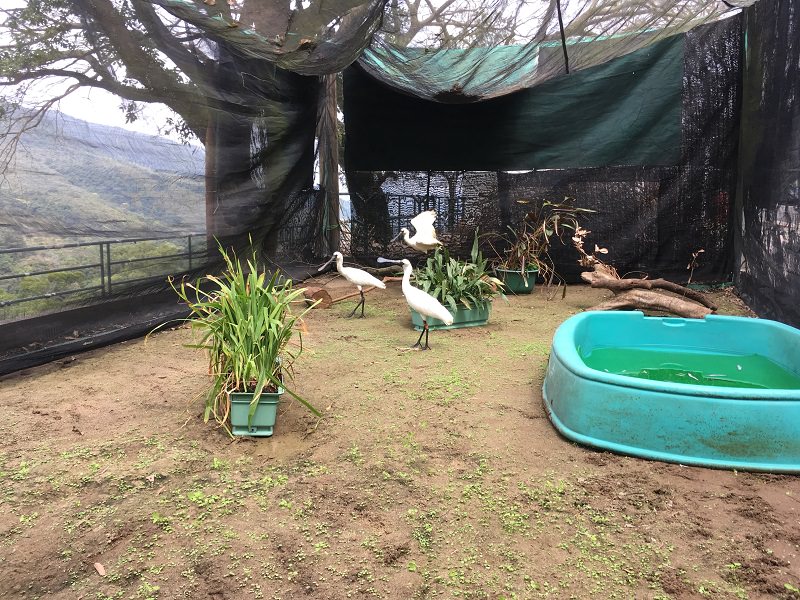Black-faced Spoonbills Returned To The Wild After Rescue
Three globally endangered Black-faced Spoonbills were reunited with the wild flock on Monday (5 March 2018) after two weeks of treatment at Kadoorie Farm & Botanic Garden (KFBG).
In mid-February, the KFBG Wild Animal Rescue Centre received six of the endangered birds. They were discovered weak, emaciated and unable to use their legs or wings. Three birds died on arrival at KFBG, and the others were immediately provided with critical care. The three surviving birds were, two juveniles aged between one and three, and one adult female aged seven to eight which was ringed in South Korea in 2011 and has completed several winter migrations to Hong Kong, and is frequently spotted by local birdwatchers.

The three rescued Black-faced Spoonbills restored strength and were able to walk around after treatment.
The trio responded well to treatment. After their condition improved and they were strong enough to sit up, they were moved from the hospital ward to a large heated indoor room with more space to walk around. Once steady on their feet, they were subsequently transferred to a large outdoor flight aviary providing the birds with adequate space to exercise their wings and take short flights. At this point the animal care team stopped all medical treatments and supplementary hand feeding and the birds were encouraged to forage for fish provided in artificial ponds.

They were subsequently transferred to a large outdoor flight aviary providing them with adequate space to exercise their wings and take short flights.
We are pleased to report that the birds quickly regained their health and were returned to the wild on Monday 5th March. Yesterday, the juvenile female Black-faced Spoonbill was sighted again in Lok Ma Chau, looking strong and healthy.
Black-faced Spoonbills are a globally endangered and according to a 2017 census, there are only 3,900 individuals in the world. About 10 per cent of the population spend their winter in Deep Bay in Hong Kong, making the area one of the iconic bird’s key stopover sites during the migration along the East Asian Australasian Flyway.
Before their release, the birds were each provided a metal ring with unique identifier number (E34, A40 and A41). Any sightings or photos of these birds would be appreciated as it helps to confirm survival of the rehabilitated individuals and also to build a better understanding of habitat use and movements by this rare bird species. Please email fauna@kfbg.org.
2018 did not start off very well for Black-faced Spoonbills. In January, two were reported having fallen victim to illegal animal traps. One of them was later found dead, the other was not sighted again. Trapping wild birds is an offence under the Prevention of Cruelty to Animals Ordinance, and under the Wild Animals Protection Ordinance, it is illegal to hunt, injure, and willfully disturb wild birds.
If you discover any illegal traps, please dial 999 to contact the Police and 1823 to inform AFCD. If you encounter any injured or sick wild animals, report to the AFCD at 1823 or the SPCA Rescue Team at 2711 1000. For more advice, please refer to: What to do if you find a baby bird?


